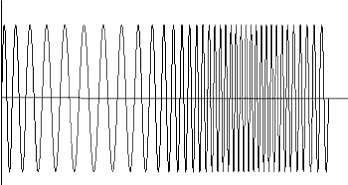Hi Everyone! Good Day! It's been a while since my last post and I'm happy to be back.
So today allow me to share some of my learnings about communications.
Microwaves are electromagnetic waves with frequencies ranges approximately from 500Mhz to 300 Ghz or more. Because microwave signals have high frequencies, it has shorter wavelength that is usually in micrometer level, hence the name “Micro” waves. Microwave signals are capable to carry thousands of information without using wires or any physical facilities like coaxial cable or fiber optics.

Trivia:
The first transcontinental microwave radio system began operating on August 17, 1951. The system comprises 107 relay stations spaced an average of 30 miles apart to form a continuous radio link between New York and San Francisco.
Types of Microwave Systems:
Short-haul – microwaves systems that carry information for relatively short distances. Also called Intrastate or feeder service microwave system.
Long-haul – microwave systems that carry information over relatively long distances. Also called interstate or backbone microwave system.
The photo above shows a typical layout for a microwave radio link. The information originates and terminates at the terminal stations and the repeaters are used to relay the information and boost up the signal used to carry the information since it experiences fading (the degradation of signal strength as it travels) as it travels. Yes, the signal experiences reduction of signal strength because of obstacles it passes. The more it passes obstacles like building and mountains, the greater signal strength is reduced. So the positioning of the repeaters must be greatly considered in a way that man-made and natural obstacles do not interfere the signal as it propagates.
●Advantages of Microwave Radio
- No requirement for a right-of-way acquisition between stations
If we transmit information with the use of wires, it will be necessary to have lots of tower. And having lots of tower means lots of land area to lend and lots of right-of-way to provide. In microwave radio, you can relay information without the use of physical facilities so right-of-way acquisition will not be a problem anymore. - Carries large quantities of information
Microwave radio can carry large quantities of information because it operates in high frequency operation. - Requires small antennas
Having small antennas in using microwave radio would not be a problem since microwave radio requires relatively small antennas because as I have said, it has short wavelengths. - Ease of propagation
It would be easy to propagate signals in water and high mountains since we can propagate signals without using wires. - Less maintenance
No more lots of towers and wires to maintain since transmission of signals is possible without wires and lots of towers.
●Disadvantages of Microwave Radio
- Circuit Complexity
Since we will use microwave that operates in high frequency operation, it would be hard to analyze and design a circuit that would operate in high frequency operation. - Specialized components are required
It would be difficult to implement conventional circuit components like resistors and capacitors in making the circuit for microwave so specialized components that operates in high frequency operation is required. - Limited Line of Sight Communication
Microwave frequencies propagate in a straight line, which limits their use to line-of-sight (a type of propagation where transmit and receive stations are in view of each other) applications.
Thanks for reading and hoping that you learned something. Have a great day guys. God Speed :)
-@renatoaying

Congratulations @renatoaying! You received a personal award!
Click here to view your Board of Honor
Congratulations @renatoaying! You received a personal award!
You can view your badges on your Steem Board and compare to others on the Steem Ranking
Vote for @Steemitboard as a witness to get one more award and increased upvotes!